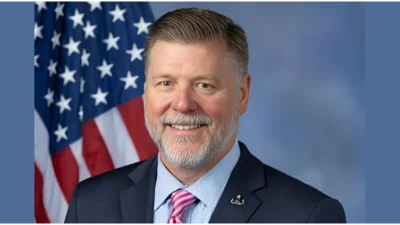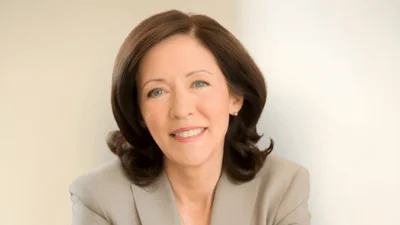Washington, D.C. -Yesterday, Rep. Carolyn B. Maloney, Chairwoman of the Committee on Oversight and Reform, held a field roundtable to hear directly from frontline communities that have been disproportionately burdened by pollution from power plants and discuss new environmental justice proposals the Committee will spearhead to curb deadly pollution and direct federal resources to the hardest-hit communities.
“Peakers are the dirtiest and most dangerous smokestacks, used at times of peak energy demand and largely concentrated in low-income communities," Chairwoman Maloney said in her opening statement. “For the 1.2 million New Yorkers living within one mile of a peaker, rates of asthma and deaths from COVID-19 are severely elevated. In addition to the noxious fumes from peaker plants, these residents are exposed to constant pollution from large power plants that run all the time, and chronic vehicle congestion. Convening with communities on the ground to address issues like this one is central to the Oversight Committee’s environmental justice agenda."
Roundtable participants included Ilona Duverge, Co-Founder and Director, Movement School; Annel Hernandez, Associate Director, New York City Environmental Justice Alliance; Elena Krieger, PhD, Director of Research, Physicians, Scientists, and Engineers for Healthy Energy; Anthony Rogers-Wright, Director of Environmental Justice, New York Lawyers for the Public Interest; and Calvin Thompson, Finance and Special Initiatives Associate, BlocPower.
At the roundtable, representatives of the PEAK Coalition -a first-of-its-kind partnership between community organizations and power sector experts in New York City- and other community leaders and experts highlighted how New York can serve as a model as they advance their efforts to retire every peaker in New York City by 2030, and the panelists underscored both the feasibility and urgency of these solutions.
* Ms. Hernandez testified, “We have passed a transformative bill to shut down a notorious jail facility in New York City and use that land-over 400 acres of land-to build the renewable energy that we need. We see that as a model of what just transition means in New York City."
* Mr. Rogers-Wright stated: “Peaker plants-which we are here to talk about shutting down and replacing with renewable forms of energy-represent the epitome of environmental racism."
* Asked by Rep. Sarbanes about the community’s views of environmental injustice, Ms. Duverge said, “I’m that person that comes from organizing on the ground," and went on to explain, “We definitely need to do a better job of engaging our communities in this process, and in return that will help empower them to actually work with us to create innovative solutions that are going to solve the crisis because-believe it or not-the people that are living this day in and day out know the best."
* In response to Rep. Welch’s question about combatting the myth that there are no alternatives to fossil fuels and that the transition away from fossil fuels is too costly, Mr. Thompson said, “It is really an issue of redlining taken into the 21st century, and there is an opportunity to reverse that by investing in incentives for clean energy programs, by investing in job initiatives, by investing in just communications and outreach to communities that may not be aware of what exists already and these are the types of things we want to collaborate with utilities, communities, and politicians on to bring to the fore."
As part of the Oversight Committee’s Environmental Justice Agenda, Chairwoman Maloney announced plans to develop legislation to ensure the federal government is a strong partner in the national effort to address environmental justice.
“As part of the Oversight Committee’s Environmental Justice Agenda, we’re developing legislation to minimize the strain placed on the electric grid that leads to the use of peakers, including by setting a 100% renewable energy target for the federal government," Chairwoman Maloney announced.
Witnesses also underscored ways in which the Green New Deal for Public Housing Act, introduced by Rep. Ocasio-Cortez, ensures that historically marginalized communities have a voice in addressing the environmental injustices they face.
In response to Chairwoman Maloney’s question about how the Oversight Committee can deploy the “Green New Deal for Public Housing" to help meet the challenge of today’s environmental justice crisis, Ms. Duverge said: “[Public housing tenants] have never been given the opportunity to have a seat at the table and express what their issues are and what solutions they believe will be best for their lives. It really came down to giving people closest to the pain an opportunity to be close to the power and actually lead that change."
The Committee also discussed how the Biden Administration’s Justice40 Initiative will play a key role in achieving environmental justice in frontline communities and how the Committee’ oversight work will ensure equitable implementation.
“I strongly support the Biden Administration’s whole-of-government approach to environmental justice through the Justice40 Initiative. I am determined to conduct strong oversight of its implementation. We must get this right and ensure that every federal agency has the tools it needs to direct at least 40% of the benefits of infrastructure investments to frontline communities like this one," stated Chairwoman Maloney. “The Oversight Committee is ready to push forward the Environmental Justice for All Act, work on additional legislation with our community partners, and conduct crucial oversight to ensure that Justice40 gets resources to the frontlines and prevents pollution in these communities."









